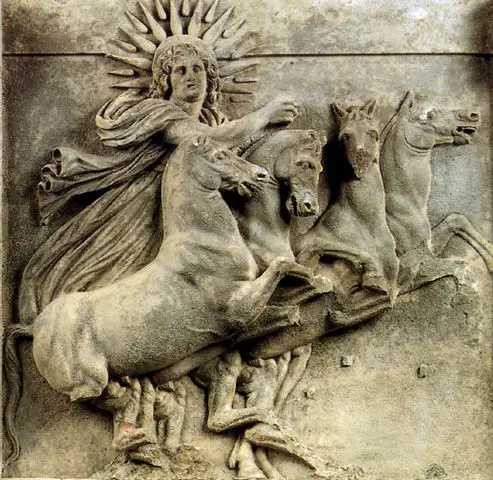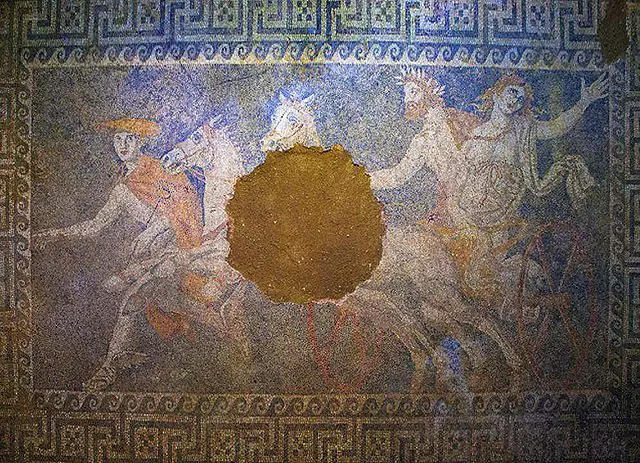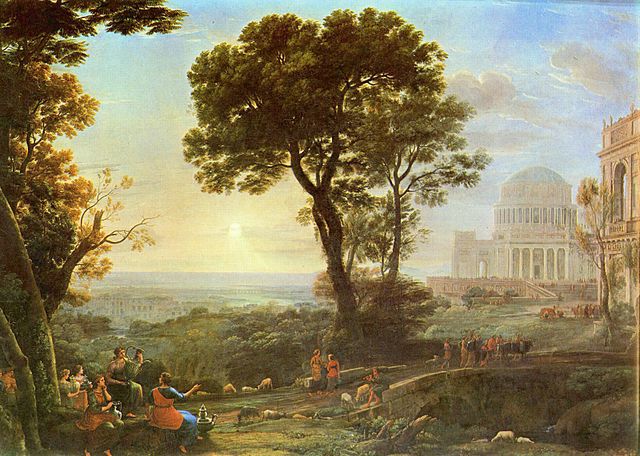
| Further Reading | When The Practice Of Greek Mythology As Religion Ended |
For the past 2,000 years, historians have been studying the ancient greek city-state of Sparta. While we know much about their warfare, politics, and society we know very little about their religion. However, over the past 20 years, historians have managed to uncover some amazing finds. Here is the latest information on the religion of ancient Sparta.
Ancient, or classical, Sparta existed from 900-371 BC. During this time the religion of ancient Sparta flourished and the city was widely admired by all other Greek city-states for its effective and rugged simplicity. However, while the ancient city-state of Sparta appeared simple from the outside it was run by a complex series of rituals, myths, and worship surrounding one primary god of the Greek pantheon; Zeus.
The following article explains in detail how classical Sparta’s religion operated. This is important to understand because while Sparta appeared to be a simple society it was actually dominated by a complex series of rituals that all stem from one foundational myth. Understanding this Spartan religion will help people to better grasp why Spartan society was referred to by other Greeks as simple and noble.
Here at The History Ace, I strive to publish the best history articles on the internet. If in the end, you enjoyed the content then consider subscribing to the free newsletter and sharing around the web.
Without further ado, here is everything you will ever need to know about the religion of ancient/classical Sparta.
The Spartan Foundational Myth That Their Religion Is Based Around
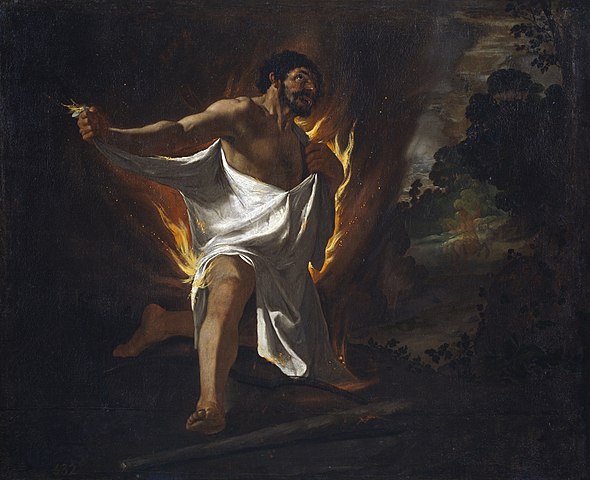
In order to understand the Spartan religion you have to understand the foundational myth which created the city itself.
The Spartan people believed that they were descended from Zeus by two lineages. The first lineage was by the ancient Spartan king Lacedaemon who founded the city and the second was the Greek hero Heracles who was a descendant of Zeus.
The first lineage of Spartan King Lacedaemon explained to the Spartans why their city was created in the first place. King Lacedaemon was the direct son of Zeus and the nymph Taygete; the nymph of wild animals. King Lacedaemon would marry princess Sparta and named the countryside after himself and the city(Sparta) after his wife.
This is why during the time of ancient Sparta the countryside was named Lacedaemon after the king and the city was named Sparta after his queen. Spartan’s believed that their city-state and the land surrounding it were directly created by the son of Zeus.
The second lineage is of the Greek hero Heracles. Heracles had many sons who in turn conquered and settled in ancient Sparta sometime after the death of the Mycenaean King Eurystheus sometime between 1800-1050 BC. These sons of Heracles who settled in the valley where Sparta is located were direct descendants of Zeus himself.
To the average Spartan, this would have explained why they were different from other Greeks. Historians have sources that detail that Spartan soldiers were about a head taller than other greeks and were in amazing shape. To the Spartans, they were different from other Greeks because they were direct descendants of Zeus.
Those are the two foundational myths of ancient Sparta. It is important to understand that Spartans believed that their city, countryside, and way of life were created by the direct descendants of Zeus. This is the ‘bedrock’ of the Spartan religion. Their rituals, constitution, and worship were all based on this.
How the Creation of the Spartan Constitution Reflects the Worship of Zeus
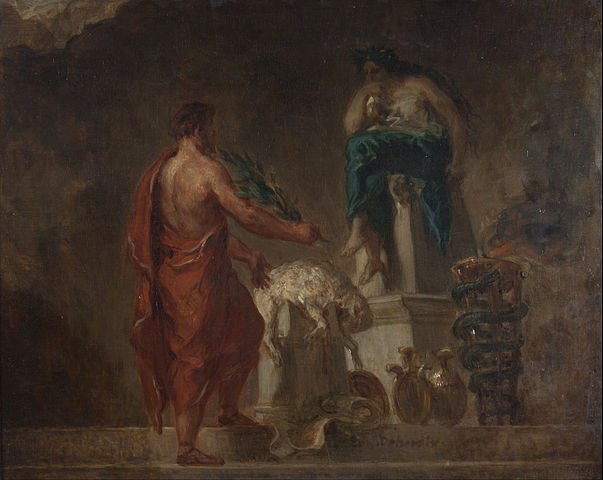
According to ancient sources up until the 9th century, BC Sparta was practically ungoverned. There was no formal law and nobody to enforce it. As Sparta’s population started to grow this became a problem. According to legend, the Spartan constitution was created to reflect the worship of Zeus.
Sometime in the 9th century BC the legendary Spartan lawgiver Lycurgus went to the Greek Oracle of Delphi to seek guidance on how to govern Sparta. As historians we have two sources that deal with this moment; Plutarch and Herodotus.
In both sources, the Spartan people would obtain their constitution from the blessing of Zeus. In Plutarch’s version, the Spartan constitution was created after consulting the oracle and being told to build a temple for Zeus (Jupiter) and his daughter Athena (Minerva). With this, the people of Sparta would receive the blessing of Zeus and could create Sparta.
In Herodotus’s version, Lycurgus instead heard the priestess of Delphi state that he was destined by Zeus to form the Spartan constitution. Further, this priestess reaffirms that the Spartan people were in fact descendants of Zeus himself by stating that she was unsure if the Spartan Lycurgus was a god or mortal.
Both primary sources that historians have detailed that the Spartan people were destined to form Sparta because they followed the worship of Zeus. This is important because it demonstrates that the Spartan people placed the worship of Zeus above other gods in the Greek pantheon.
The Spartan Pantheon Demonstrated By Their Rituals
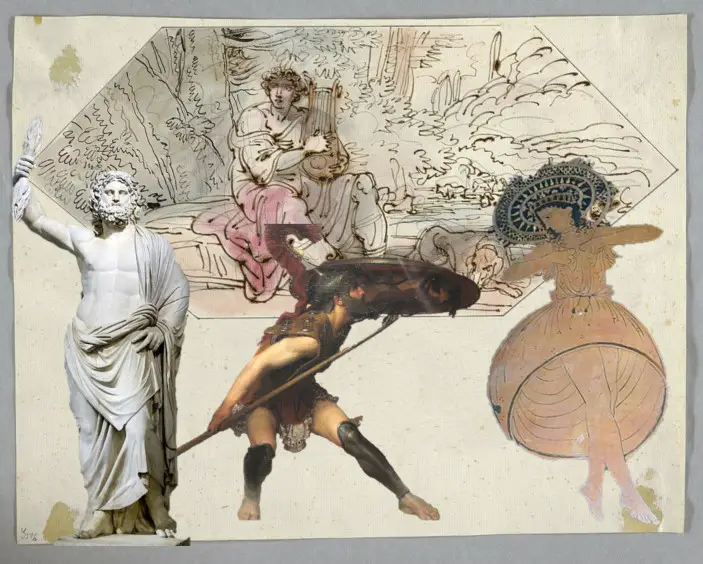
Spartan society had several rituals that all intertwined together to create a very complex society. While they primarily believed that they were descended from Zeus they also worshipped a few other Greek gods through their ritual system.
Historians have been piecing together the Spartan pantheon over the past 20-30 years by studying the rituals that the Spartans performed throughout the year. Out of these rituals, 3 were by far the most important to Spartan society; the agoge, gymnopaedia, and carneia.
What is interesting about Spartan society was the level of devotion they had toward these 3 rituals. On several occasions, Spartans would put off a military campaign or major action to hold these festivals. They did this even if it jeopardized the entire city-state of Sparta.
While each of the following 3 rituals/festivals were dedicated to a number of Greek gods 3 stand out above all others.
- Zeus: God of weather, order, and fatherhood
- Apollo: God of truth, culture, and the human body
- Artemis: Goddess of the hunt, wilderness, and nature
As a result of this, you might say that the Spartan pantheon revolved around 3 core concepts; dedication to duty and simplicity, dedication to Spartan society and physical education, and dedication to living in accordance with nature.
The first ritual, the agoge was designed to indoctrinate Spartan boys into the military. From an early age, a Spartan would be taught to read, write, hunt, and listen to orders from older Spartans. On top of this, a Spartan boy was expected to adhere to Spartan society.
The second ritual, the gymnopaedia was an ongoing festival that all Spartan men took part in. Dancing naked the Spartan warriors would shout tales of past heroic deeds and give thanks for their lives. Each group of Spartan soldiers would be separated by age and rank and can be seen as a festival to help solidify Spartan culture as it was dedicated to Apollo and Artemis.
The third ritual was the carneia. This ritual was the Spartan ritual of the harvest and took place in August. This Spartan ritual was designed to help bring about a good harvest for the Spartan people. It was dedicated to Apollo and Artemis and celebrated Spartan life.
Conclusion
There you have it; the entire Spartan pantheon explained through their mythos, rituals, and constitution.
Sparta remains a fascinating Greek-City state. Their religion revolved around the concept of nature, order, simplicity, and duty to Sparta. Because of this 3 main Greek deities were worshipped; Zeus, Apollo, and Artemis.
I hope you enjoyed this article. Here at The History Ace, I strive to publish the best history articles on the internet. If you enjoyed this then consider subscribing to the free newsletter and sharing around the web.
Further, you can check out some of the other articles below.
-
The Religion of Sparta: Their Gods, Rituals, and Mythos

What did the Spartan religion look like? What Greek gods did they worship? Here are all the answers to those questions.

